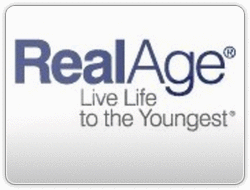Is RealAge a scam?


Is that a scam? A recent New York Times article certainly implies it.
RealAge targets its ads at those of us in middle-age, folks who can easily scarf up prescription pills the way some of us scarfed up more illicit fare in our youth.
Stephanie Clifford writes:
Pharmaceutical companies pay RealAge to compile test results of RealAge members and send them marketing messages by e-mail. The drug companies can even use RealAge answers to find people who show symptoms of a disease — and begin sending them messages about it even before the people have received a diagnosis from their doctors.
Part of this charge is that many of us pay more for drugs than we need to. CNN's Empowered Patient series often focuses on the high cost of prescription drugs and offers alternatives -- benazapril for Altace, for instance.
In most consumer markets there is nothing going on here. There is no scandal if I get you to fill out a form on cars and then send you a car ad. Or a travel ad. Or even a liquor ad, assuming you're over 21.
The problems of the drug market are a lack of price transparency and gatekeepers to whom price is a secondary consideration. "Ask you doctor," said CNN reporter Elizabeth Cohen repeatedly this morning, imploringly.
Ask your doctor what? Ask if he's heard the good word about benazapril? Ask if it's a valid ACE inhibitor replacement for the name brand drug? Or ask if he (or she) might consider the fact that you're not made of money when they prescribe medications.
In many ways the ginned-up scandal over RealAge gets us to a key place in the whole health care debate.
Sometimes the name brand drug is the right drug, or the more precise drug. Sometimes it's just the name brand. If the patient is poor, or admits to financial anxiety, a doctor may be moved but otherwise, not so much.
If a doctor can defend the name brand based on efficacy, they should. Most often, as I have found, they don't. My doctor does not practice cost-effective medicine unless she is asked to.
So the question in health reform is, should we all ask her to? Must we? What do you think? Who has the responsibility for assuring cost-effective medical practice -- the doctor, the patient, the insurer, or the government?